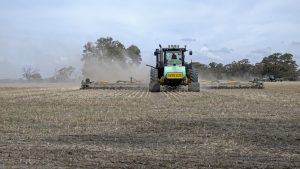Australia’s Northern Territory last week was expecting up to 200 workers to arrive from Vanuatu to harvest mangoes, despite Australia’s borders having been shut to non-residents since late March.
The $14.4 billion horticulture sector relies heavily on seasonal workers from the Pacific Islands and Timor-Leste, as well as tens of thousands of backpackers on working holiday visas. But as borders began closing around the world due to the spread of COVID-19, many were forced to either return home or face an uncertain future in Australia.
As borders remain shut, Australian farmers, especially in the north of the country, have become increasingly concerned that there will not be enough experienced labor to work the coming summer months, possibly resulting in a spike in costs for some produce, too.
The Northern Territory pilot program was the first to be approved by the Federal Government, but further agreements were made on August 21 paving the way for workers to travel to other Australian states and territories in the near future. Under the Northern Territory scheme, farmers are expected to cover the costs of two weeks hotel quarantine at a rate of $2,500 per worker.
Built on the success of the Seasonal Worker Program, the Pacific Labor Scheme came into effect in mid-2018. Off to a sluggish start, the program had only managed to recruit 83 workers as of November 2018. But the program now has the potential to become a lifeline to Pacific countries hit hard by the loss of tourism due to COVID-19, as workers can and often do send money home while working in Australia. It will also ensure that Australian produce will not go to waste and therefore prevent fresh produce becoming more expensive.
The program requires that employees offer positions to local workers first before applying through the scheme. Australians have long neglected horticulture jobs but as unemployment reaches a record high, it’s possible some labor shortages will be filled by Australians willing to relocate for work.
At a recent parliamentary inquiry, it was unveiled how efforts are being made to lure Australian workers to the industry. This includes a proposal by the Australian Fresh Produce Alliance (AFPA) to pay Australians $1,200 to relocate for work.
National Farmers’ Federation (NFF) spokesman Ben Rogers said the former Seasonal Worker Incentive Trial, which encouraged welfare recipients in the country to move to rural areas and work on farms, hadn’t been successful but that given the circumstances today, “the program could be rolled out again and given another go.”
The government is also considering opening a travel channel to backpackers through the working-holidaymaker program. Rogers told the inquiry the number of backpackers in Australia had fallen from 140,000 in March to about 80,000 in June.
“We look at around 40,000 working in the sector per annum, so there would be enough provided they could move around the country to go where that work is,” he said.
He said the NFF was working with the Backpacker Youth Tourism Advisory Panel to develop “a COVID-safe pathway proposal” that would allow backpackers into Australia in a “highly controlled manner.”
“The rollout would have to be cautious, but with appropriate safeguards it’s hard to image what rational objection there could be,” he said.
In a submission to the same inquiry, the AFPA noted that backpackers contributed $13 billion to the national economy and filled 127,000 jobs across the fresh-food sector, including in retail and manufacturing.
Back in April, the government announced that they would offer visa extensions to non-residents still residing in the country and working on Australian farms or in other critical industries.
“What we are saying to those visa holders is that if you’re prepared to stay in this country and help us get through this then we’ll extend your visa,” said Agriculture Minister David Littleproud at the time. “Only if you’re working in agriculture or a critical industry, that being health and aged care as well as agriculture.”
As of mid-August, 401 people on the working holidaymaker program and around 3,550 on the seasonal worker program have been given extensions, according to the Home Affairs Department.
The government also announced last week that a pilot program to allow international students to fly into Australia from China, Hong Kong, and Japan will commence next month. Up to 300 students are expected to arrive into Adelaide before undertaking the standard 14-day hotel quarantine.

































